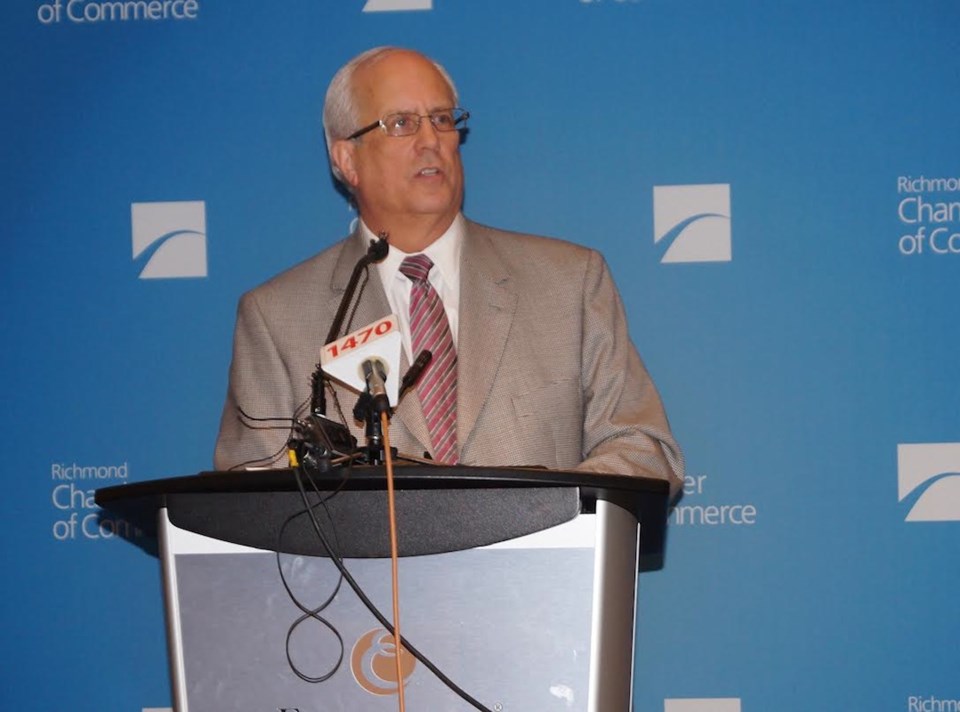Richmond residents will pay close to three per cent more in property taxes this year after a majority of city councillors endorsed the city’s $277 million operating budget (city report).
The 2.89 per cent tax increase includes a one per cent annual hike to fund the city’s reserves.
Prior to the November 2014 municipal election councillors Harold Steves, Alexa Loo, Bill McNulty, Linda McPhail, Chak Au and Ken Johnston said the city ought not to raise taxes to fund the reserve.
But at a finance committee meeting Monday Steves, Loo, McNulty and McPhail voted in favour of the new budget at the behest of the city’s director of finance Jerry Chong, who warned of low reserve levels in 10 years should the tax plan not be continued.
Johnston called for a spending review and was joined by Au and Coun. Carol Day in their opposition to the budget.
Day opposed the budget saying she was only handed the documents three days prior, calling the process “atrocious” and that there was no way she could make an informed decision.
Day also expressed concern about the increase.
Coun. Derek Dang and Mayor Malcolm Brodie voted in favour of the plan, just as they said they would.
“I think that the only reason that we can have the facilities we have is because of the reserves. If we don’t put money into the reserves we won’t have the reserves, it’s as simple as that,” said Brodie.
Without the extra one per cent, Chong calculated that by 2024 the city would have about $110 million less in uncommitted reserves after replacing needed buildings and infrastructure.
Items that may be on the table in the next five years include: new community centres in Steveston and City Centre, new skating rinks, a performing arts centre, a museum and a City Centre geothermal energy utility. That’s on top of the usual infrastructure such as roads, sewer, dyke and pump station upgrades.
Steves echoed Brodie’s claims.
"We’re not in bad times, so we need to leave that one per cent in. We have a lot more buildings to build than just a swimming pool and seniors centre. …So, I think it’s a good budget and the one per cent is crucial,” said Steves.
He added that the tax increase will impact wealthier people more.
“It’s the billionaires that will pay the taxes with all the construction going on, not the poor people,” he said.
While the Consumer Price Index increase was only one per cent, Chong noted municipal costs exceeded the CPI.
Salaries and benefits for city employees rose three per cent this year and fringe benefits like the Medical Services Plan, pension rates, electricity costs and WorkSafe BC premiums rose six per cent, in total.
Richmond still has a tax rate lower than most neighbouring municipalities, with Surrey being an exception.
The committee concurrently passed its $92.5 million 2015 capital budget, which follows the ambitious 2014 $129 million budget that featured a new Minoru pool and No. 1 Hall fire station.
This year the city will spend $49 million on infrastructure, including $12 million on expanding the Alexandra District Energy Utility. It will also spend $12 million on the parks program as well as $10 million on land acquisition.
Just over one third of capital improvements will be paid for through development charges.
The budgets are subject to final council approval on Feb. 10.



